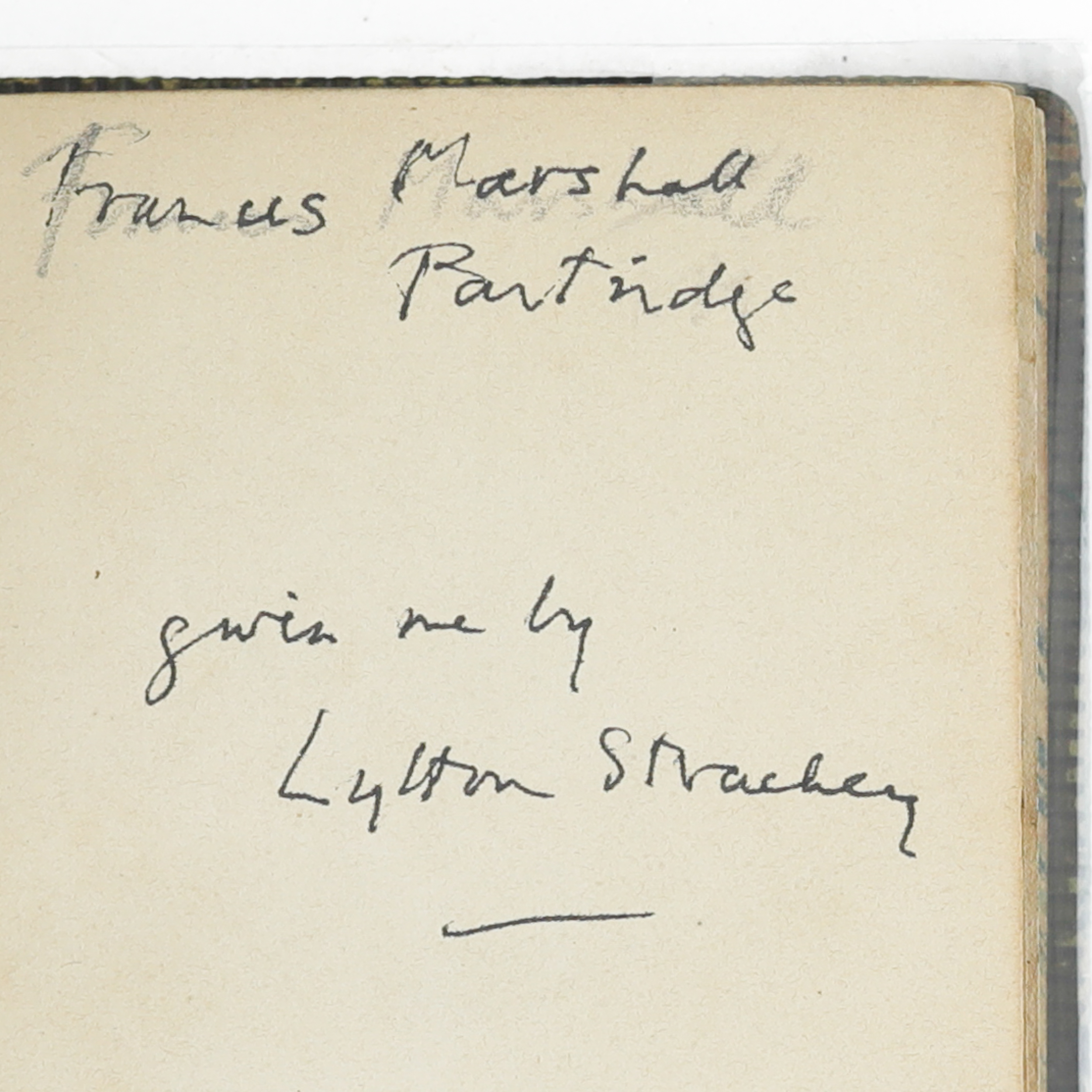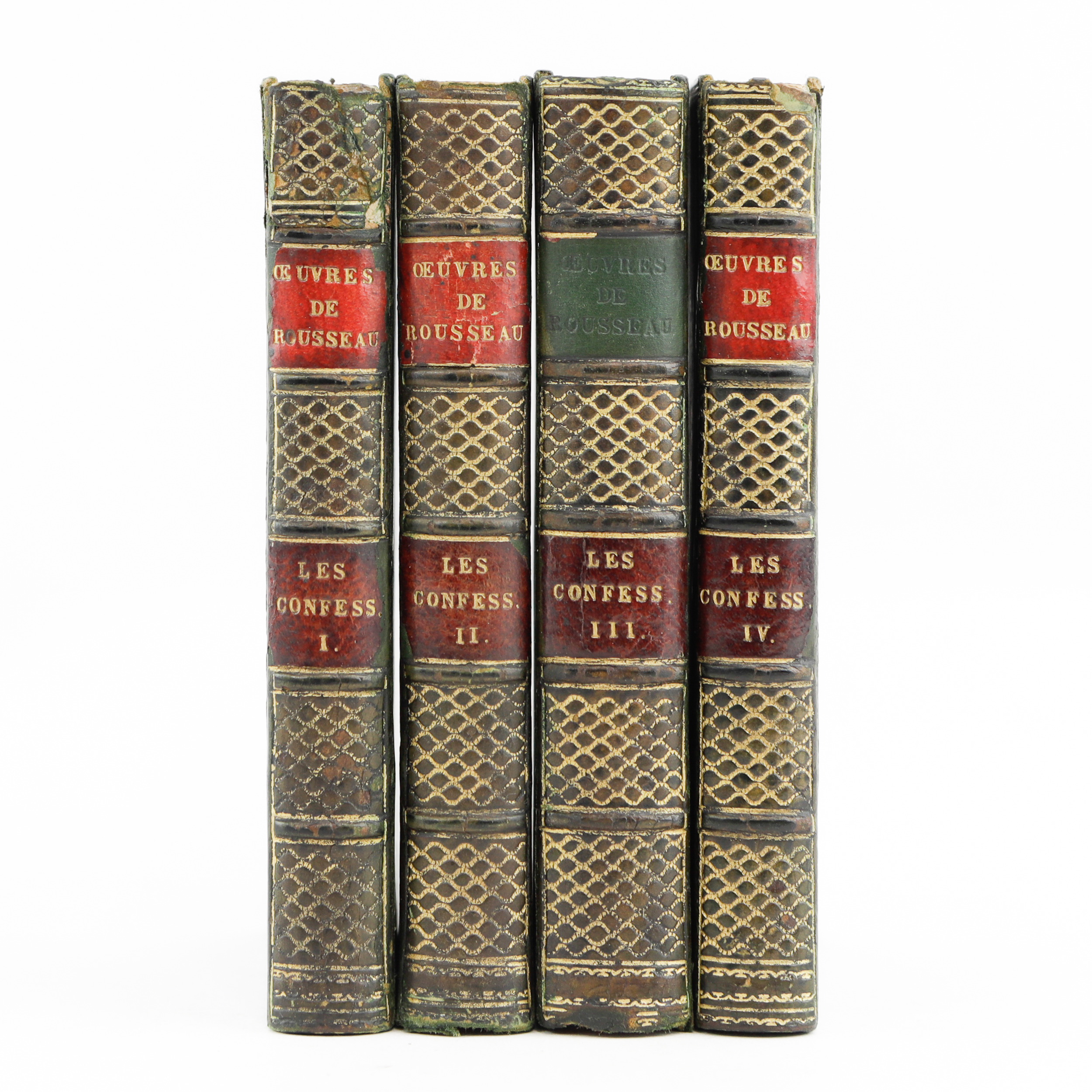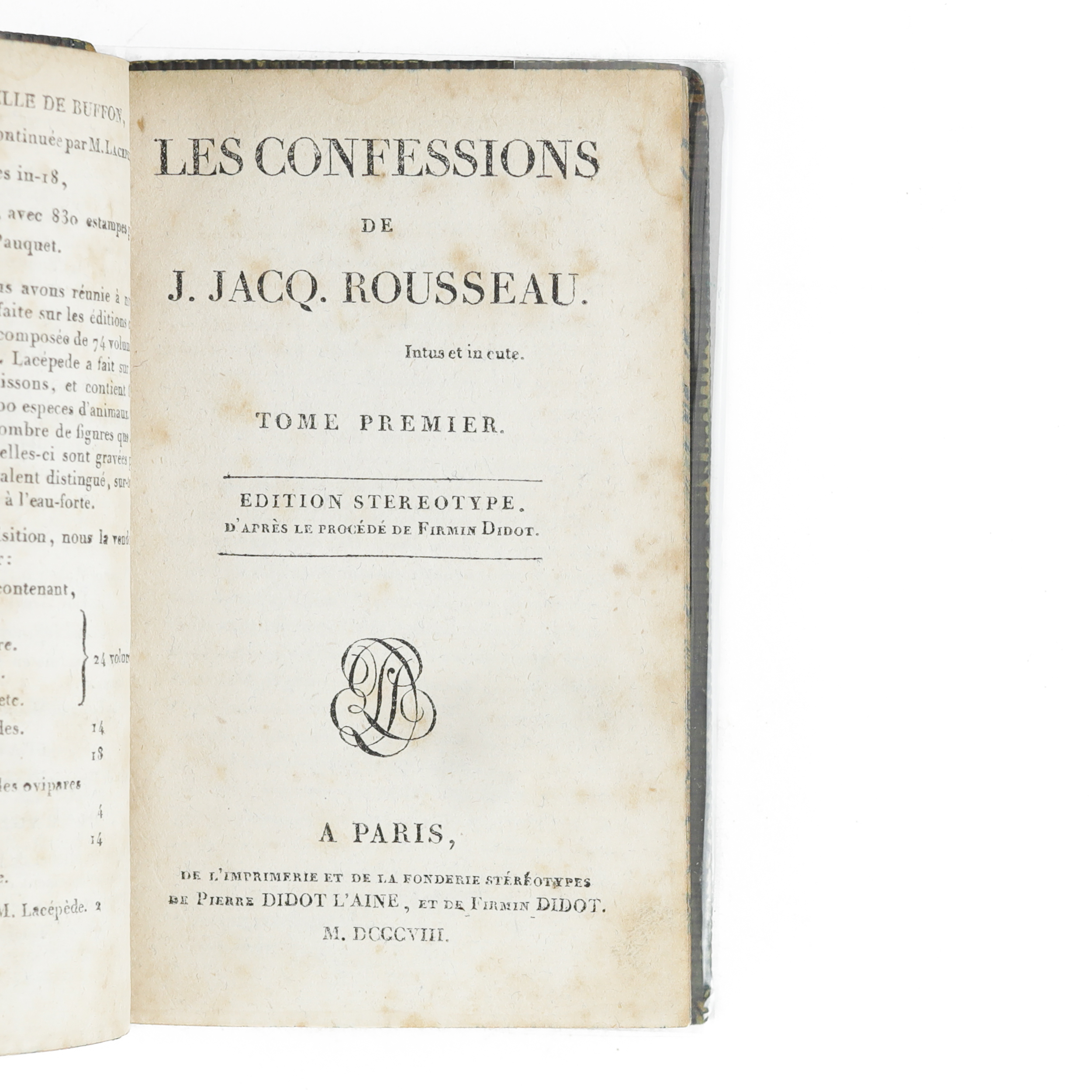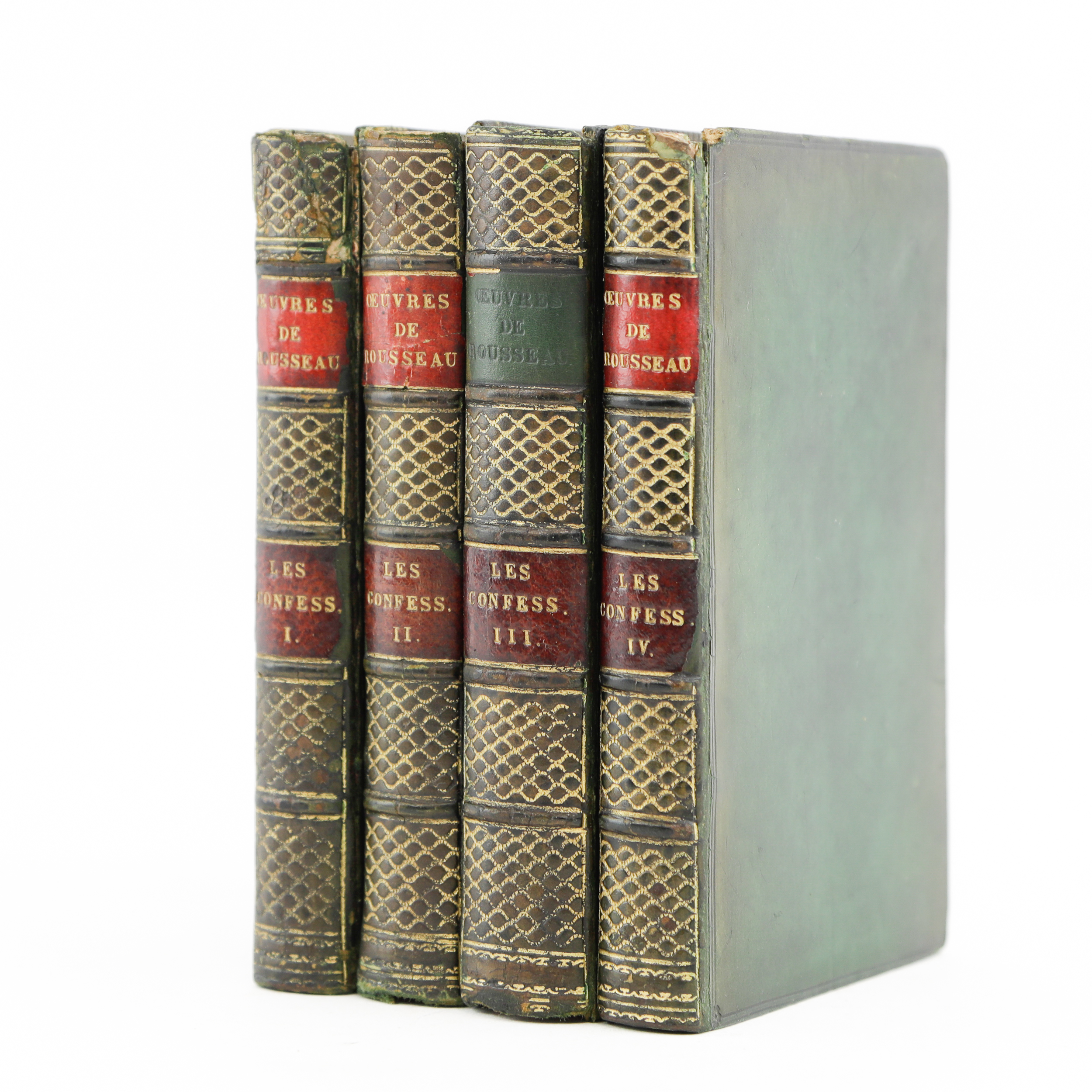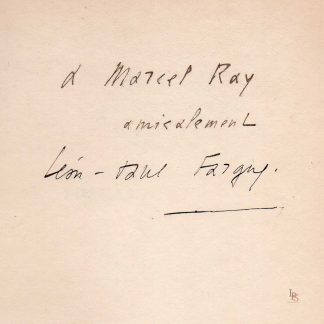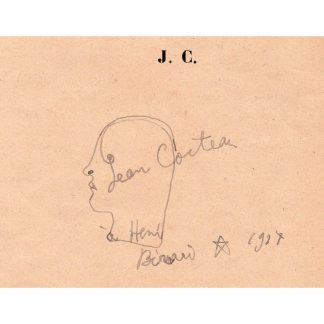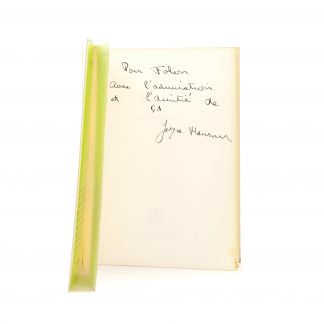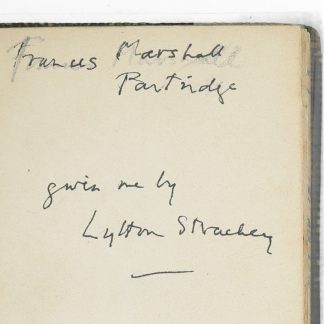Description
Stereotype edition in 4 volumes printed using the Firmin Didot process.
COPY OF FRANCES PARTRIDGE GIVEN BY LYTTON STRACHEY.
Frances Marshall Partridge
given me by
Lytton Strachey
One of the last artists to join the Bloomsbury group, Frances Marshall married Ralph Partridge, a close associate of Lytton Strachey who had long cohabited with him and his first wife Dora Carrington. Starchey, then already famous as the author of Eminent VictoriansThe couple were entrusted with the preparation of an edition of Charles Greville's diary that he had begun. The Greville Memoirs was published in 1938, with Starchey as editorial director.
The members of Bloomsbury had a keen interest in the modes of confession and autobiography. One example is the Memoir Club project, a spin-off of the Bloomsbury group in the 1920s. Under Strachey's influence, the Bloomsbury group had also recognised Rousseau as a precursor of Romanticism and modernity, the cultural distance between the philosopher and his contemporaries echoing that which had been created between the group and the society of the time. Lytton wrote in "The Rousseau affair" (Books and Characters) :
"As we see him now, in that long vista, Rousseau was not a wicked man; he was an unfortunate, a distracted, a deeply sensitive, a strangely complex, creature; and, above all else, he possessed one quality which cut him off from his contemporaries, which set an immense gulf betwixt him and them: he was modern. Among those quick, strong, fiery people of the eighteenth century, he belonged to another world-to the new world of self-consciousness, and doubt, and hesitation, of mysterious melancholy and quiet intimate delights, of long reflexions amid the solitudes of Nature, of infinite introspections amid the solitudes of the heart. Who can wonder that he was misunderstood, and buffeted, and driven mad?"
A precious copy of this seminal text on "writing the self", a true copy association between two members of the Blomsbury Group, the biographer Starchey and the diarist Partridge.
The copies, bound in green calf at the time, were much consulted and have many defects.
"HJ Eaton, London 5 May 1852" handwritten bookplate on the four false titles
FRANCES PARTRIDGE'S COPY, GIFTED BY LYTTON STRACHEY.
Autograph bookplate and note by F. Partrige on the first volume:
Frances Marshall Partridge
given me by
Lytton Strachey
One of the last artists to join the Bloomsbury group, Frances Marshall was the wife of Ralph Patridge, a close friend of Lytton Starchey--the two of them, along with Partridge's first wife Dora Carrington, had famously lived under the same roof. Together, Frances Marshall and Ralph Partridge prepared an edition of Charles Greville's diary, a project which Starchey had started. The Greville Memoirs were published in 1938, with Starchey as editorial director.
The Bloomsbury's interest na the modes of confession and autobiography (one may recall the 1920s Memoir club project) found an echo in Rousseau's Confessions; in addition, the Bloomsbury group, under Starchey's impulsion, had come to recognize Rousseau as a fundamentally "modern" figure, a proto-Romantic whose distance from his contemporaries mirrored that which existed between the Bloosmbury and society at large. In "The Rousseau affair" (Books and Characters), Lytton wrote:
"As we see him now, in that long vista, Rousseau was not a wicked man; he was an unfortunate, a distracted, a deeply sensitive, a strangely complex, creature; and, above all else, he possessed one quality which cut him off from his contemporaries, which set an immense gulf betwixt him and them: he was modern. Among those quick, strong, fiery people of the eighteenth century, he belonged to another world-to the new world of self-consciousness, and doubt, and hesitation, of mysterious melancholy and quiet intimate delights, of long reflexions amid the solitudes of Nature, of infinite introspections amid the solitudes of the heart. Who can wonder that he was misunderstood, and buffeted, and driven mad?"
That a copy of this seminal book on "the writing of the self" passed from biographer Lytton's hands to those of memoir-author Frances Partridge is then both significant and moving.
"JLK[??] Eaton, London 5 May 1852" ex-libris in ink on all four half-titles.
Contemporary green calf binding, raised bands and gilt decor on the spine with red title piece, double blind frame on the boards, gilt border on the spines, inner blind border, combed egdes.
Spines discolored, some rubbing, joints scuffed and loose with upper joint split on vol. 1, title piece missing on vol. 3, lacks on headcaps, corners rubbed. Foxing.
Bound in full green calf, spine ribbed and decorated, framed with a double cold fillet on the boards, roulette on the edges, cold inner roulette, combed edges.
Spines faded, rubbed, spidered and weakened jaws with upper jaw split in vol. 1, title-piece missing from vol. 3, missing upper headpieces, corners rubbed. Some foxing.

